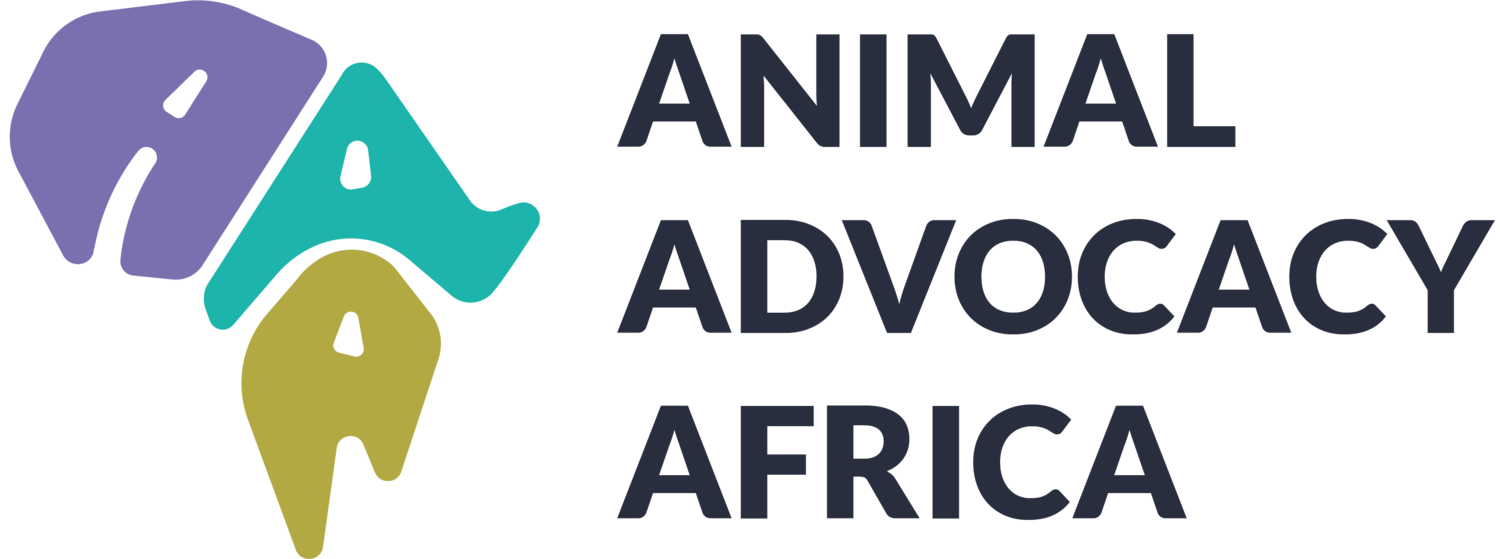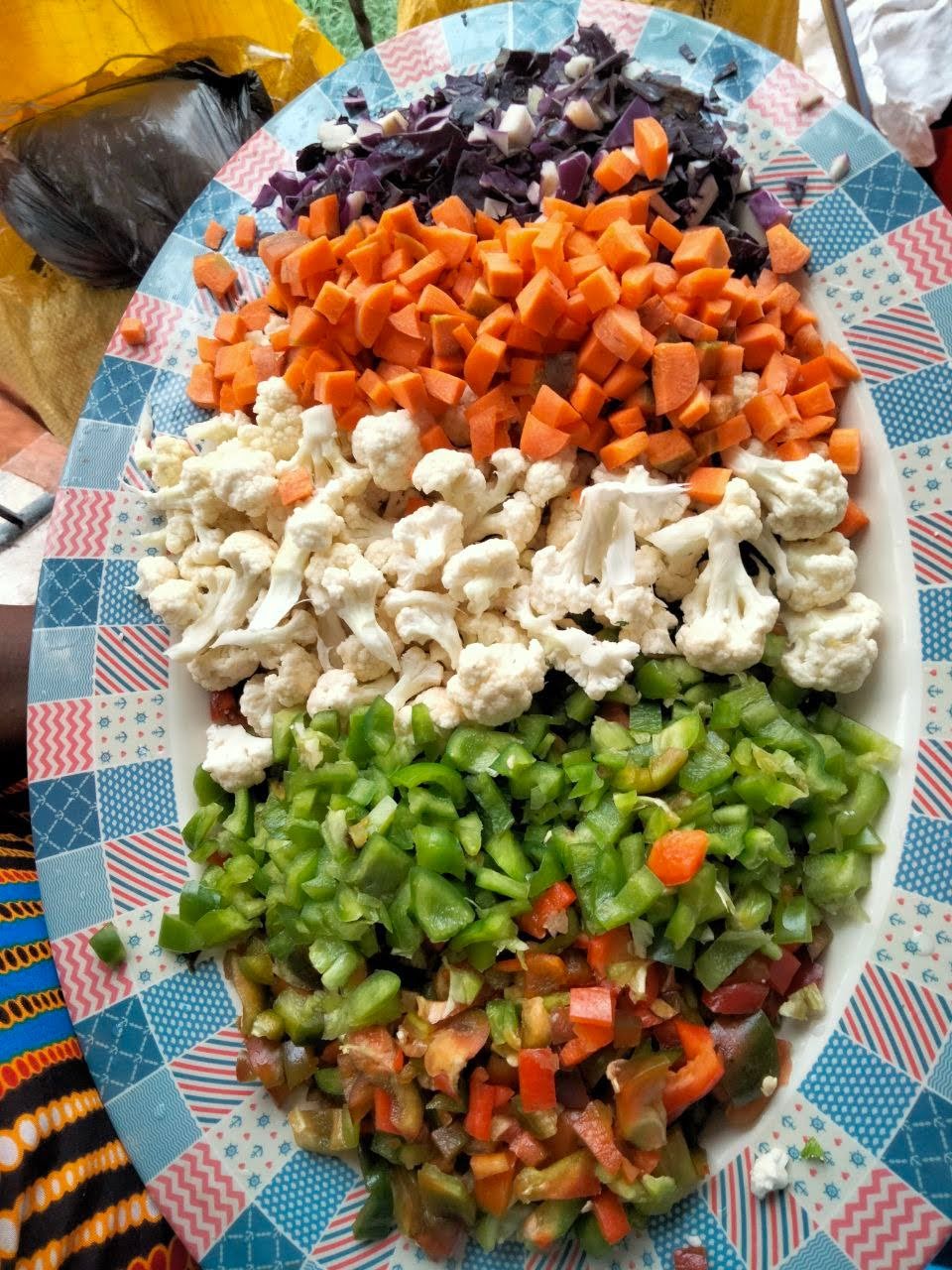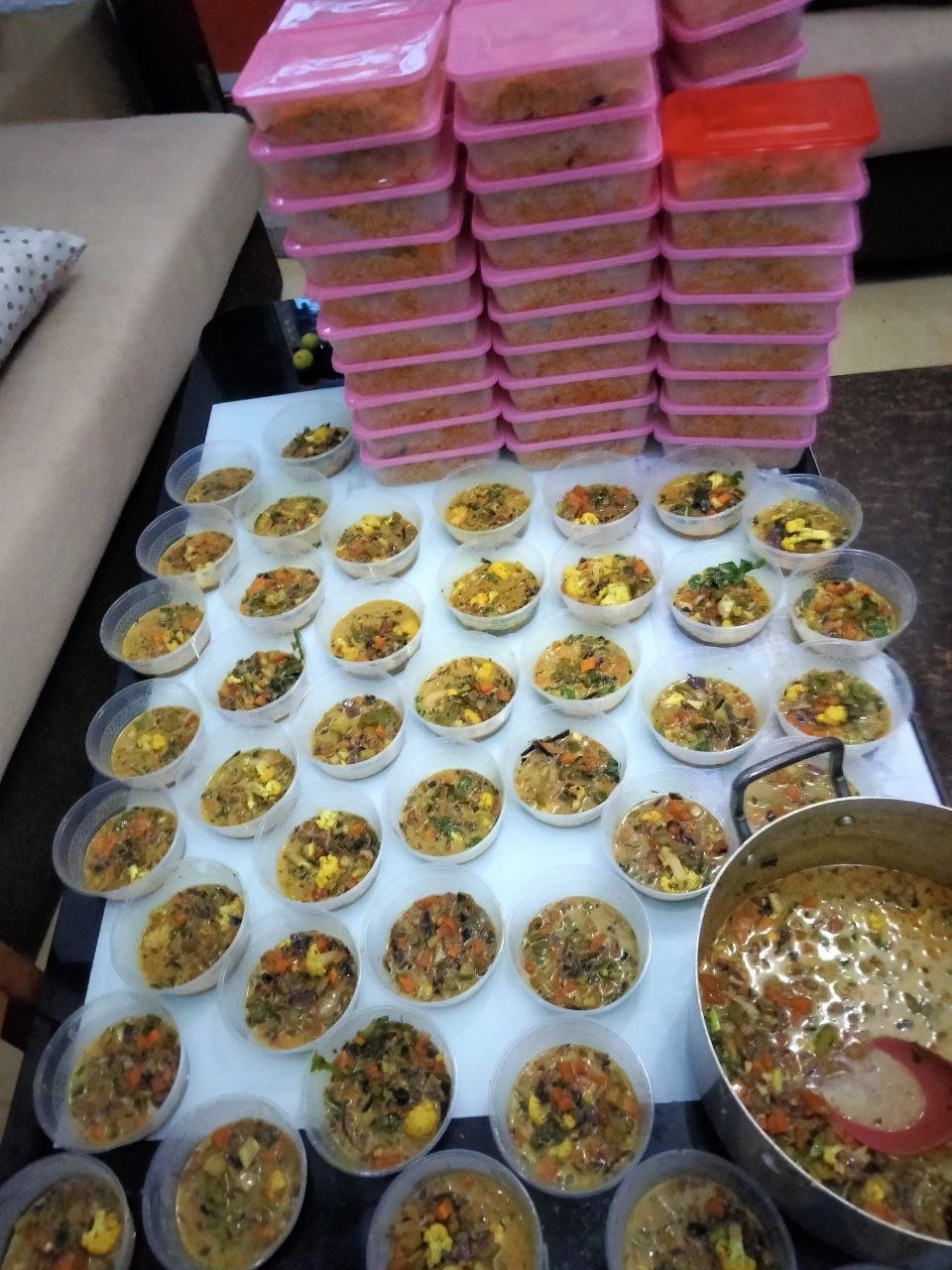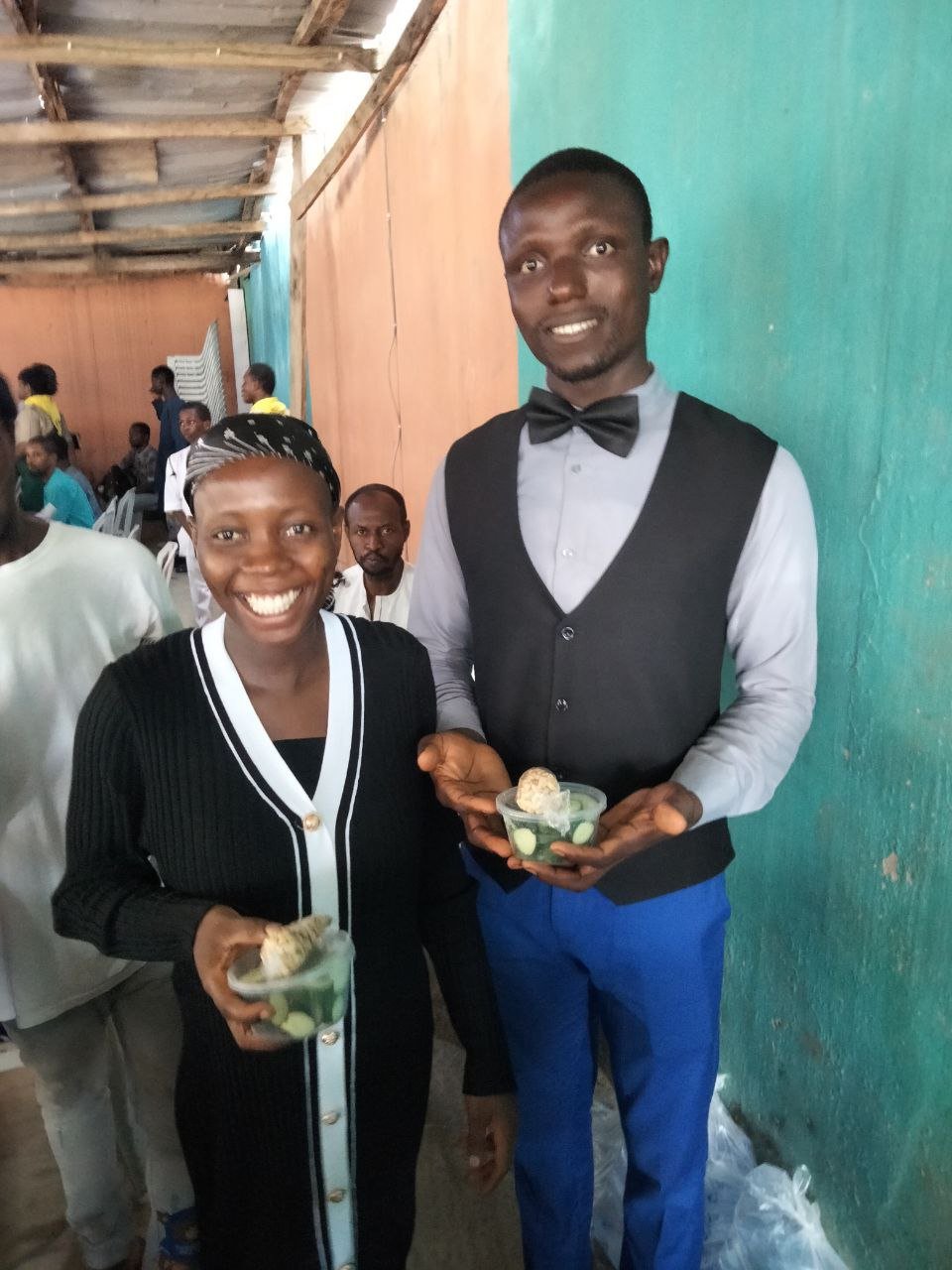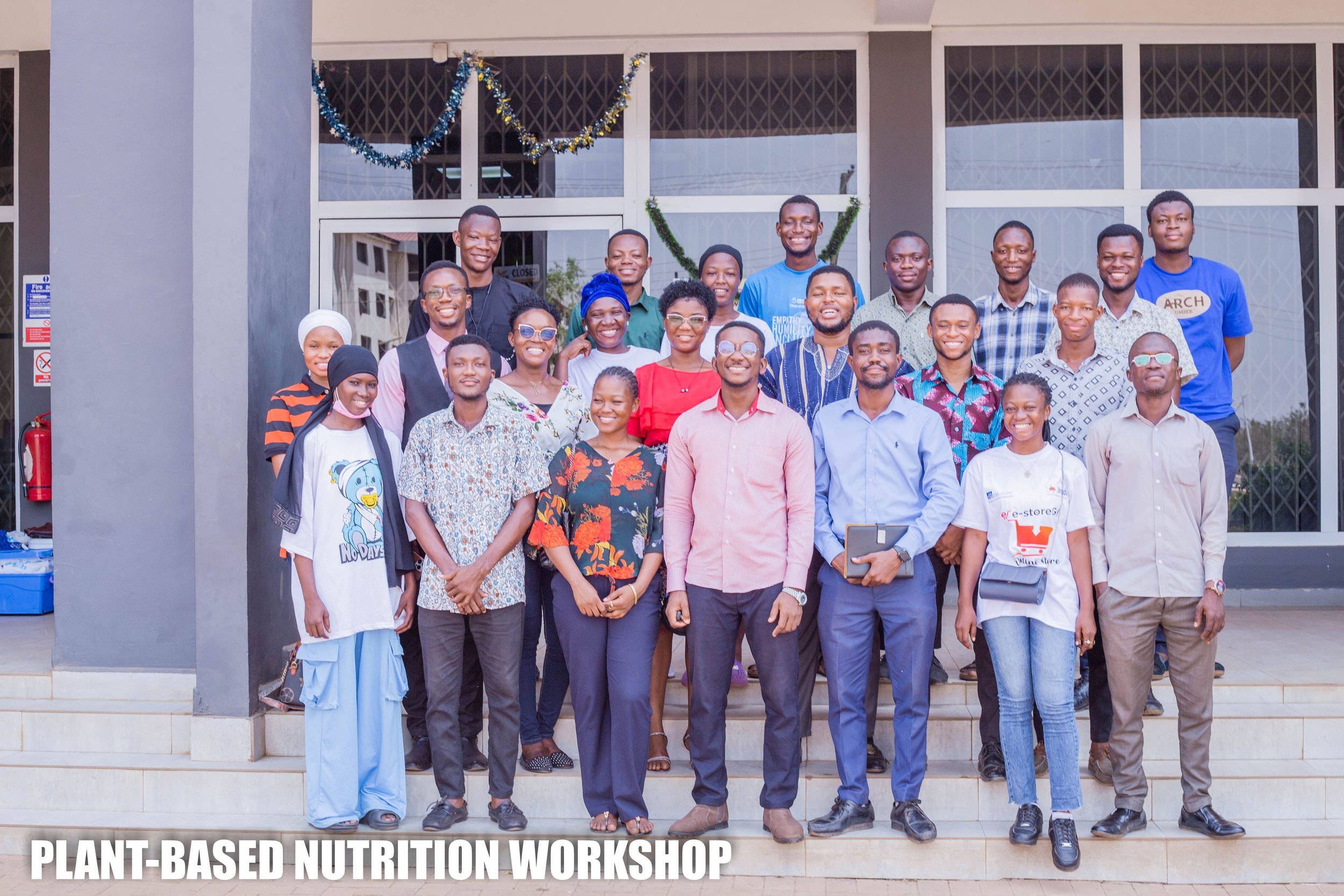Plant-based Awareness and Education by advocates
The following projects occurred as part of our 2024 Intermediate training programme. Each project was led by one of our participants who implemented the project and wrote a report based on their outcomes and findings. We ran our first Fundamentals training programme at the end of 2023 in which select participants progressed to the Intermediate training programme. During the Intermediate programme, participants were tasked with executing short-term projects (which will be described in the next three blog posts). They have now moved to the Advanced training programme in which they are deciding which long-term projects to start.
This series of blogs serves not only to showcase the achievements of our participants but also to provide valuable insights into their projects, challenges encountered, and lessons learned. We have divided the reporting of these projects into themed blog posts, the first one focuses on plant-based oriented projects by Marybeth Ubanwa, Emmanuel Awuni and Jacob Achumboro Ayang. Two additional posts will highlight the impactful work of the five other participants who worked on cage-free and animal welfare education projects.
Plant-based Awareness workshop in Okota, Lagos State, Nigeria - Marybeth Ubanwa
Before the workshop, Marybeth worked with 4 volunteers to establish relationships with possible participants, invite people to the programme, and share health-focused materials with the community. The volunteers included a naturopathic physician, a plant-based advocate, and two willing Adventists. They helped to create awareness in the community, assisted with logistics, cooking, serving food, and answering questions from participants.
Marybeth hosted a plant-based workshop that coincided with a community health outreach programme of the Seventh Day Adventists in Okota, Lagos State, Nigeria. The health team conducted free health checks, and anthropometric and blood pressure tests on interested participants. There were health talks that focused on various topics such as the importance of consuming more plant-based foods and the nutritional benefits of indigenous fruits and vegetables. For example, one talk was held by Mr. Emeke, a naturopathic physician, who presented about plant-based foods and lifestyle diseases. On the final day of the health outreach programme, Marybeth spoke about adopting a plant-based lifestyle.
The second element of Marybeth’s project provided plant-based meals to participants in the form of plant-based milk alternatives (coconut, tiger nut, and date), healthy drinks (hibiscus iced tea), and plant-based meals (tofu scrambled with yam or rice and Chinese-inspired sauce). The health outreach programme ran for 10 days, and the 80-100 participants were served an estimated total of 717 servings of food. Subsequently, a WhatsApp group of 66 participants was created for those interested in adopting a plant-based diet.
Some of the initial lessons reflected on by Marybeth include: doing market/price research before making a food budget as the cost of the ingredients exceeded the estimated cost by almost 20%; a skilled volunteering team was essential as they provided support such as advising on food storage and meal preparation; adaptation and flexibility was important (e.g., changing the tiger nut drink to cucumber and peanut was easier to prepare and store, alternating between drinks and meals was easier than serving both at the same time).
If this project were to be repeated, there is a suggestion to test-run which drink and meal options are preferred to increase interest in a plant-based diet.
Plant-based Nutrition workshop at the University for Development Studies, Dungu Campus Tamale, Ghana - Emmanuel Awuni and Jacob Achumboro Ayang
This one-day plant-based nutrition workshop aimed to ignite a call for plant-based living among students at the University for Development Studies (UDS), Dungu Campus Tamale. Emmanuel and Jacob explored the positive impacts of such living on health, the environment, and animal welfare. The workshop consisted of informative speaker presentations, interactive roundtable discussions, and Q&A sessions which culminated in a call to action: a one-month pledge in which participants actively adopt plant-based diets at least one day a week. Participants were served plant-based lunch which was a vegetable pie, bread roll and fruit juice.
While the content seemed to resonate strongly for participants, further outreach strategies are needed to increase future workshop attendance. Despite the lower turnout, the workshop successfully fostered a sense of community and ignited a call for plant-based living among students, resulting in a new plant-based club on the campus.
Participation
There were 28 participants at the workshop, which we consider to be low. (This is in comparison to the 67 participants who originally signed up; this was higher-than-expected registration as we anticipated 40 participants to sign up.)
Target audience: The workshop targeted University of Development Studies (UDS) students from diverse backgrounds (i.e., different academic courses including pharmacy, medicine, medical laboratory sciences, physical science, nutritional science, education, public health, and midwifery).
Workshop Format and Activities
The day began with presentations from speakers. The Key Resource individual started with a presentation on the health benefits of plant-based diets. This was followed by a presentation by Jacob Ayang on animal welfare and how the food we eat can greatly improve the welfare of farmed animals. Emmanuel Awuni's presentation focused on the consequences of animal agriculture on the environment and the lower environmental toll of plant-based diets.
Following the presentations, the workshop transitioned into a large roundtable discussion. This facilitated an interactive exchange of ideas and experiences among participants, allowing them to delve deeper into specific topics covered in the presentations (expansion of moral circle to non-human animals, animal sentience, animal welfare standards in Ghana, etc).
Example questions from participants:
What is the impact of meat-based diets on cholesterol levels?
Are plant-based meats healthy and nutritious for humans?
What is the protein content in plant-based diets and how sufficient is it?
I heard plant-based meals are usually processed; how healthy is that?
Do all animals feel emotions?
Are we supposed to treat animals more kindly and later consume them?
With concerns being raised about animal welfare, should animal sports be continued?
Do all animals have the same level of sentience?
Key Findings and Outcomes
Quantitatively, we had about 67 individuals registered for the workshop, which exceeded our expectation of 40 participants.
In the registration form, 19 participants indicated they were interested in joining a plant-based club on the campus.
Post-workshop, 2 participants indicated they were happy to take up leadership positions of the plant-based club. (They have yet to start the club due to end of semester exams).
5 participants have shown pictorial proof of adopting plant-based diets.
This workshop highlighted a growing interest in plant-based living. People grew curious about the health, environmental, and ethical implications of their food choices.
Interactive elements like roundtable discussions enhanced engagement.
While the workshop resonated with those who attended, the turnout was lower than anticipated. For future events, broader outreach strategies would need to be explored and developed. This could involve an in-person invitation that goes to the various lecture halls and faculties to talk about the event. For future workshops, using an event app or platform that automatically sends email reminders and adds the event to participant calendars could significantly increase attendance. This would streamline communication and reduce the chance of people forgetting about the event. Lower participation showed some advantages such as more intimate discussion time and less people probably meant that there were more committed people which encouraged those around them to be more excited.
